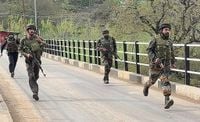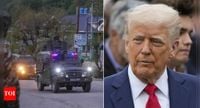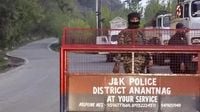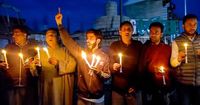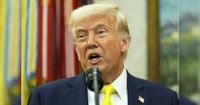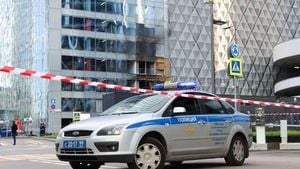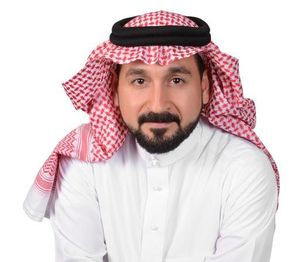On April 22, 2025, a tragic terror attack in Pahalgam, Jammu and Kashmir, left at least 28 people dead, including tourists from abroad. The attack, which occurred in a picturesque meadow popular with visitors, has drawn swift condemnation from global leaders, including U.S. President Donald Trump and Russian President Vladimir Putin.
The incident unfolded around 3 PM local time when terrorists opened fire on a group of tourists, leading to a scene of chaos and devastation. Among the deceased were two foreigners—one from the UAE and another from Nepal—and two local residents, according to high-ranking officials. This attack has been described as the deadliest in the region since the infamous Pulwama strike in 2019.
President Trump, expressing his condolences via a post on Truth Social, stated, "Deeply disturbing news out of Kashmir. The United States stands strong with India against Terrorism. We pray for the souls of those lost, and for the recovery of the injured. Prime Minister Modi, and the incredible people of India, have our full support and deepest sympathies. Our hearts are with you all!" Trump also reached out directly to Indian Prime Minister Narendra Modi to convey his deepest sympathies and support for India in the fight against terrorism.
In a similar vein, Russian President Vladimir Putin condemned the attack, calling it a "brutal crime that has no justification whatsoever." He extended his condolences in a message to both Prime Minister Modi and President Droupadi Murmu, emphasizing the need for the perpetrators to face justice. Putin also reiterated Russia's commitment to enhancing cooperation with India in combating terrorism.
Italian Prime Minister Giorgia Meloni expressed her sorrow over the attack, stating she was "deeply saddened" and offered solidarity with the victims and their families, as well as the Indian government. The United Arab Emirates (UAE) Ministry of Foreign Affairs also issued a strong condemnation of the attack, affirming their rejection of violence and terrorism.
The attack has raised concerns, especially as it coincided with the visit of U.S. Vice President J.D. Vance to India. Vance and his wife, Usha, expressed their condolences, stating, "Over the past few days, we have been overcome with the beauty of this country and its people. Our thoughts and prayers are with them as they mourn this horrific attack." This visit was intended to strengthen U.S.-India ties, making the timing of the attack particularly alarming.
The Resistance Front (TRF), a group linked to the Pakistan-based Lashkar-e-Taiba (LeT), claimed responsibility for the attack, further complicating the already tense situation in the region. Jammu and Kashmir Chief Minister Omar Abdullah described the incident as "much larger than anything we’ve seen directed at civilians in recent years," highlighting the severity of the attack.
In light of the ongoing violence, Union Home Minister Amit Shah convened a high-level meeting with local officials, including Chief Minister Abdullah, to assess the situation and formulate a response. As the investigation unfolds, officials are working diligently to ensure the safety and security of residents and tourists alike.
As the world watches, the incident serves as a stark reminder of the persistent threat of terrorism in the region. The international community's swift response underscores the shared commitment to combating such acts of violence and supporting those affected by them. The solidarity expressed by leaders like Trump and Putin illustrates a united front against terrorism, as nations come together to condemn these heinous acts.
The attack in Pahalgam not only resulted in a tragic loss of life but also poses significant implications for regional stability and international relations, particularly between India and its allies. As investigations proceed and the situation develops, the hope remains that justice will be served and that such tragedies can be prevented in the future.
In the aftermath of this attack, it is crucial for both local and international authorities to collaborate closely, sharing intelligence and resources to combat the threat of terrorism effectively. The resilience of the Indian people and their government will be tested, but the support from global leaders may provide a strong foundation for recovery and rebuilding.
As the mourning continues, the world stands in solidarity with the victims and their families, hoping for peace and healing in a region that has faced too much violence.
